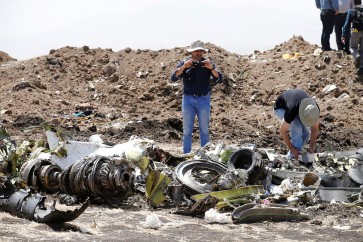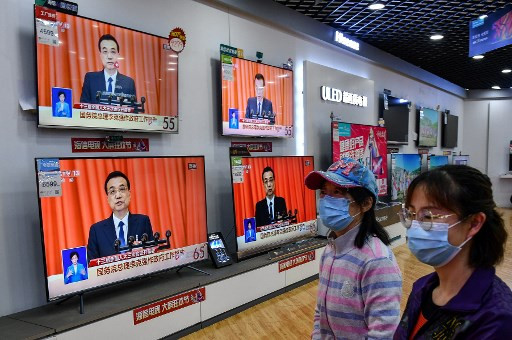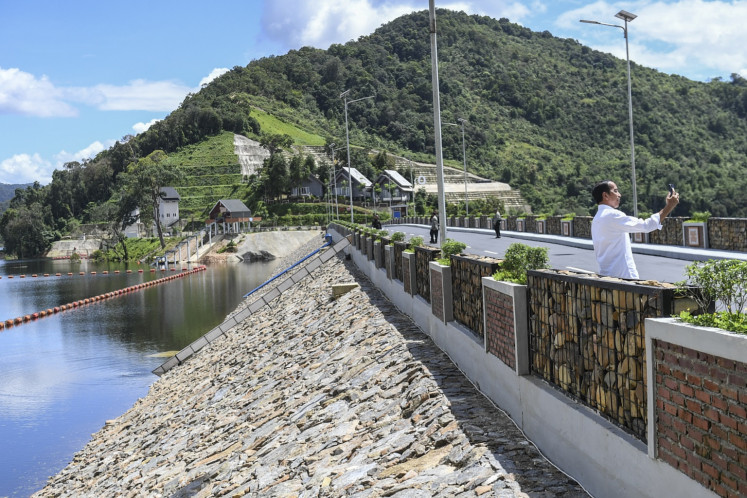Citizens, govt can work hand in hand to contain coronavirus outbreak
Reports of the devastating impacts of the COVID-19 pandemic have not seemed to slow down, and the national situation in Indonesia is no different.
Change Size
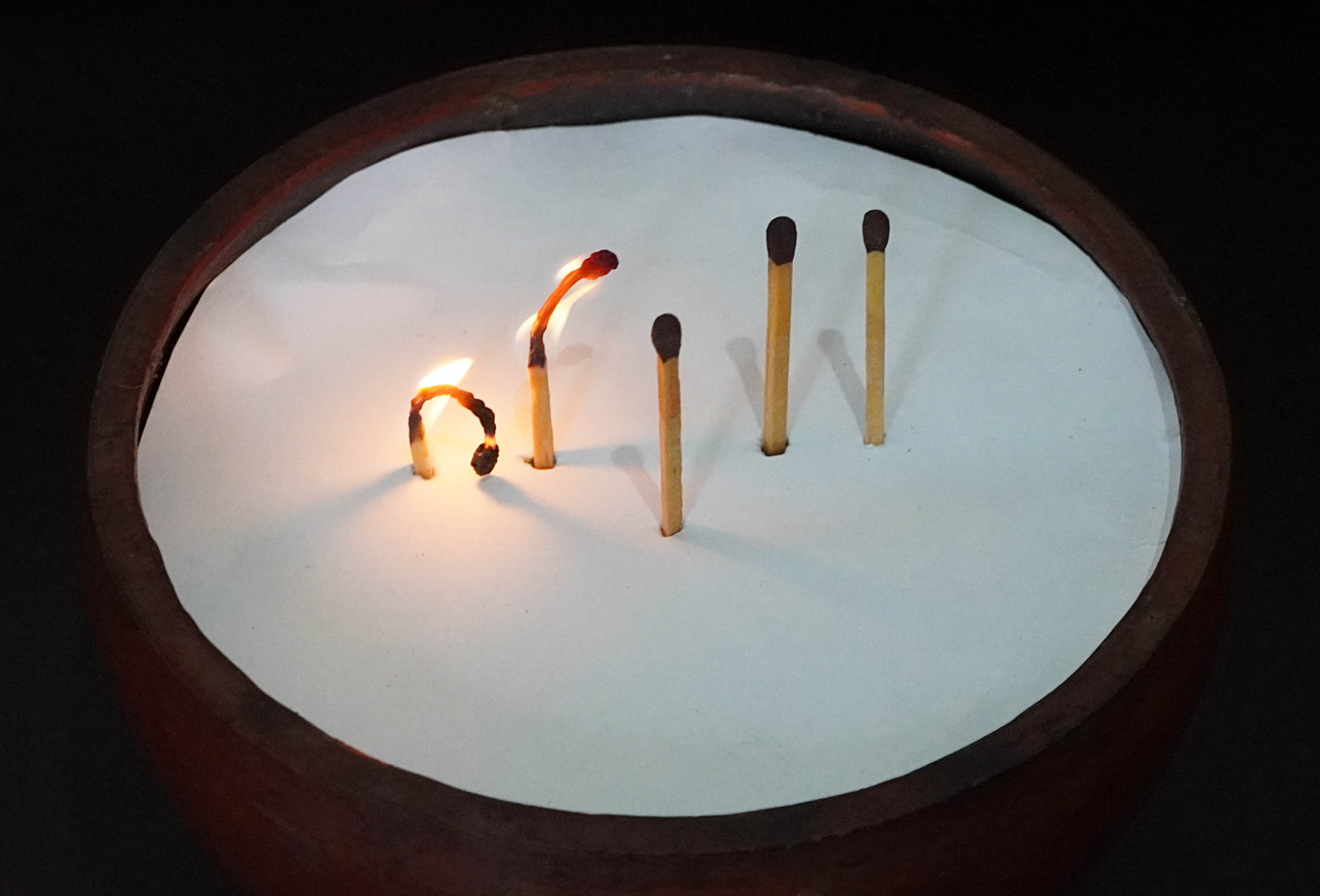 Breaking the chain: Physical distancing can be an effective method in slowing the spread of the coronavirus, as it reduces the chances of COVID-19 infecting those who are healthy. (JP/Arief Suhardiman)
Breaking the chain: Physical distancing can be an effective method in slowing the spread of the coronavirus, as it reduces the chances of COVID-19 infecting those who are healthy. (JP/Arief Suhardiman)
R
eports of the devastating impacts of the COVID-19 pandemic have not seemed to slow down, and the national situation in Indonesia is no different. Yet, at difficult times like this, Indonesians do not need to panic – given that they have taken individual prevention measures such as physical distancing, staying at home and washing hands regularly. All of this should be enough while the government does its share in taking a systemic approach to contain the coronavirus outbreak.
According to a government spokesperson for COVID-19-related matters, Achmad Yurianto, in order to give Indonesians peace of mind amid the outbreak, he wants to let them know that the government is currently managing its healthcare ecosystem meticulously to ensure an availability of facilities and professionals for those who have already been infected by COVID-19.
“For instance, we will temporarily rotate the nurses who work in the neurological department to the more crowded lung and internal organs department – which handles COVID-19 patients. We will also mobilize healthcare professionals from community health centers (Puskesmas) to also come to the rescue,” he said.
A task force, meanwhile, has been recruiting healthcare volunteers nationwide – given that they fulfill certain criteria and undergo training, obviously – to also help the patients, Achmad said. As of April 2020, the Health Ministry has recorded 3,065 medical and healthcare volunteers as well as 12,974 non-medical volunteers.
Currently, according to Achmad, the government is still continuing its contact tracing using rapid testing kits, prioritizing the most vulnerable circles, namely: (1) those in contact with individuals who tested positive for COVID-19, either at home or in the workplace; (2) all healthcare professionals who handle COVID-19 patients; and (3) all healthcare professionals in areas with the highest prevalence of COVID-19, such as the Pancoran district in South Jakarta.
The government has distributed 475,200 rapid testing kits to health agencies across all Indonesian provinces. The kits collect blood samples by puncturing a person’s fingertips in order to conduct a serology examination to determine whether a person has developed an antibody for the coronavirus, according to Achmad.
He acknowledged that the serology blood test could not diagnose people with COVID-19, different from the visual conversion reaction, which can detect the presence of the coronavirus antigen based on oral swab tests; thus, healthcare professionals need to conduct follow-up screenings after a week because a person’s immune system might not react right away to the presence of the coronavirus in their body.
In a nutshell, the serology tests detect the presence of the coronavirus indirectly, as opposed to the visual conversion reaction (VCR) tests, which can detect the virus’ presence right away.
According to the Health Ministry’s press release, more than 6,500 samples have been collected nationwide, sent to 34 laboratories across Indonesia. People who appear to develop an antibody for COVID-19 – which means they tested positive for the illness – will have to undergo self-quarantine.
And, yet, of course, prevention is always the best method in response to any kind of health crisis.
Achmad, as quoted by a press release made available by the Health Ministry, said that the continuous increase in the numbers of infection in Indonesia indicated that many locals still ignored official calls on physical distancing and washing hands regularly.
Therefore, he said the government would take a more stringent approach to ensure people’s compliance with calls of physical distancing. Police officers are also currently dispersing public gatherings to “flatten the curve” of the outbreak, according to Achmad.
“From now on, the National Disaster Mitigation Agency (BNPB) will forcibly stop non-essential public activities, especially those involving social gatherings. Of course, businesses that provide healthcare such as drugstores will remain open, as will minimarkets and vendors that sell people’s staple needs, including groceries and clean water. Restaurants can still operate but they can only serve takeaway [food] and [make] food deliveries,” Achmad told The Jakarta Post in a phone interview.
He added that media offices – such as television and radio stations – could still remain open; these companies, however, needed to keep the number of people inside their offices to a minimum. He said the task force would soon announce a clearer guideline on which public services and businesses could remain open.
Achmad acknowledged that many people – especially small and medium businesspeople, giggers and outsourced workers – could not afford to cease operations because they did not have any steady income; with so many people already embarking on an early mudik[Idul Fitri exodus] to their hometowns because their livelihoods in the city had been impacted hard by the economic paralysis brought about by COVID-19 pandemic.
He went on to say that the government was currently devising a subsidy scheme to ensure the social security of these individuals.
“We are calculating that Jakarta has an X number of such individuals and we might need trillions of rupiah to subsidize their living,” he explained.
He also mentioned that the regent and deputy regent of Ciamis, West Java, Herdiat Sunarya and Yana D. Putra, respectively, agreed to have their salaries cut by 50 percent for three months, with the funds from this to be donated to efforts to curb the coronavirus outbreak.
The Ciamis regency administration will also call on local civil servants who enjoy additional allowances to donate 10 percent of their main salary and 5 percent of their functional allowances for the next three months.
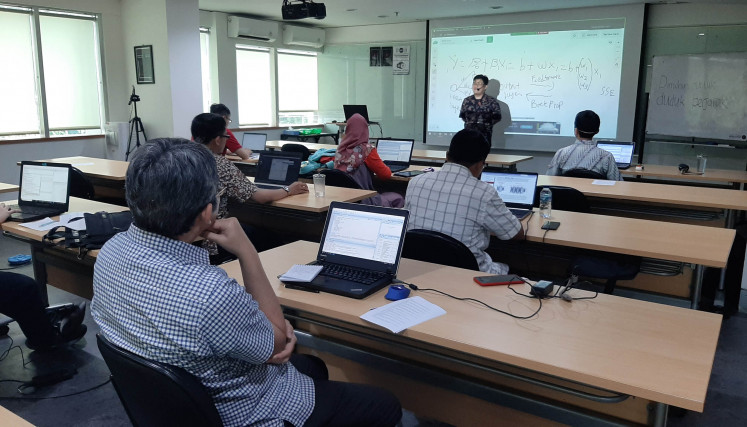
Last but not least, Achmad reminded all Indonesians who had taken all preventive measures possible – physical distancing, self-quarantine, frequent handwashing – to stay calm by going through a “news diet”, especially by cutting down on news with conflicting predictions about the coronavirus outbreak, which can exacerbate anxiety and cause panic.
According to Achmad, scientific communities might have an interest in staying abreast with these different forecasts because it is part of their job, but maybe the wider public can limit their consumption of the news for peace of mind.
“Just stick to the rational prevention methods. If you’ve done your best to prevent it, especially when you have been conducting physical distancing and just staying at home all this time, hopefully you’ll be OK,” he said.
As of April 2, the Indonesian government’s COVID-19 rapid response task force confirmed a total of 1,790 patients had tested positive for the disease, with 170 fatalities and 112 recoveries.

